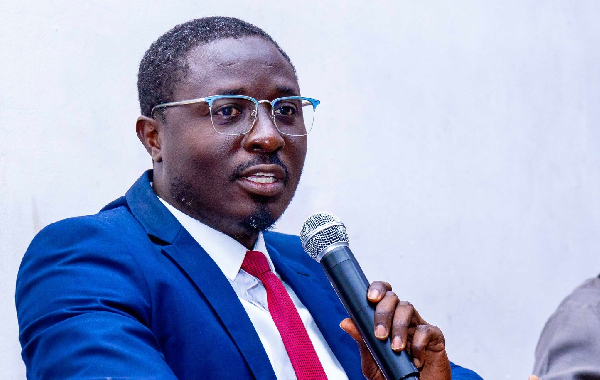The global financial system has faced several shocks over the years, with the 2008 financial crisis being one of the most devastating. While conventional banks crumbled under excessive risk-taking and interest-based lending, Islamic banks remained resilient, even stepping in, to provide financial support to struggling institutions.
This remarkable stability demonstrates the strength of Islamic banking and highlights why Ghana must seriously consider integrating it into the country’s financial system.
Within the span of two years (2023-2024) the three largest economies in Africa – Nigeria, Egypt and South Africa have raised an aggregate equivalent of $3.045 billion through the issuance of “Sukuk” which is an Islamic debt instrument which contributes 2% of Global Sukuk volumes and accounts for 70% of African global sukuk issuance since 2014.
This can be used to finance essential services and critical investment needed to boost economic growth. Nigeria, Egypt and South Africa have all stated that Sukuk is now an integral part of their public debt mix. It is a less costly public fundraising alternative structure. It will be a key step in broadening investor based and enhanced funding strategy.
As Ghana looks to diversify its economy, reduce dependency on debt financing, and enhance financial stability, Islamic banking offers a sustainable alternative. With its strict internal controls, ethical banking principles, and risk-sharing model, it can provide the stability that conventional banking has struggled to maintain.
During the 2008 global financial crisis, the collapse of the U.S. housing market and reckless lending by financial institutions led to a financial catastrophe. Major banks such as Lehman Brothers went bankrupt, stock markets across the world crashed, governments were forced to bail out banks with public funds, and unemployment levels skyrocketed. Conventional banking, built on high-risk lending and speculative investments, was exposed as a deeply flawed system.
Islamic banks, however, remained largely unaffected. Because they do not engage in speculative investments or interest-based lending, they were shielded from the worst effects of the crisis.
Unlike conventional banks, which transfer risk entirely onto borrowers, Islamic banks operate on a risk-sharing model, ensuring that both the lender and the borrower have a stake in the success of a project. This model promotes responsible lending and prevents the kind of reckless financial behavior that led to the 2008 collapse.
Islamic banking is designed with built-in safeguards that promote financial stability and strong risk management. Unlike conventional banks that charge interest on loans and create cycles of debt, Islamic banks earn profits through shared investments. This prevents excessive risk-taking and unsustainable debt accumulation. Additionally, all Islamic banking transactions are backed by tangible assets, ensuring that money is always linked to real economic activity rather than speculative investments.
A key difference between the two systems is the internal control and audit mechanisms. Islamic banks have stringent internal controls and are monitored by an independent Shariah Supervisory Board (SSB) to ensure compliance with ethical financial practices. This level of oversight prevents risky financial behavior and ensures transparency. Conventional banks, on the other hand, have often engaged in high-risk derivatives and speculative trading, increasing their exposure to financial crises.
Ghana stands at a crossroads in its economic development. The country faces mounting public debt, high-interest rates, and limited access to affordable financing for businesses and infrastructure projects. The introduction of Islamic banking can provide an alternative financing model that does not burden the country with unsustainable debt. Through instruments such as Sukuk (Islamic bonds), Ghana can finance major infrastructure projects like road construction, railway expansion, hospital development, and housing projects without increasing national debt.
With over 42 percent of Ghanaians unbanked, largely due to distrust in the conventional financial system, Islamic banking can improve financial inclusion by offering products that align with the ethical and religious beliefs of many Ghanaians.
Furthermore, integrating Islamic banking into Ghana’s financial system would attract foreign direct investment from Middle Eastern and Asian markets, similar to what has been achieved in countries such as Malaysia, the United Kingdom, and Nigeria.
Islamic banking has already proven successful in many countries. Malaysia’s Islamic banking sector accounts for over 30 percent of its total banking industry, contributing significantly to its economic growth. The United Kingdom, despite being a non-Muslim-majority country, has over £5 billion in Islamic finance assets, attracting investment from the Middle East.
Nigeria has successfully integrated Islamic banking into its financial system, improving financial inclusion and funding infrastructure development. Indonesia has raised over $3 billion in Sukuk financing to build roads, airports, and public housing, while Turkey’s participation banks have supported small and medium-sized enterprises and sustainable development.
Ghana must take advantage of this proven financial model. The country needs a shift away from a debt-driven economy towards a risk-sharing financial system that promotes sustainable development. The Minister of Finance, Dr. Cassiel Ato Forson, must prioritize the introduction of Islamic banking by working closely with the Bank of Ghana (BoG) to establish the necessary regulatory framework.
Parliament must pass laws that allow the operation of non-interest financial institutions, while investors and businesses should explore Islamic finance as a viable funding alternative.
The time for action is now. Ghana has an opportunity to build a financial system that serves the needs of all its people, reduces reliance on debt, and strengthens economic stability.
Islamic banking is not just a financial model for Muslims it is a proven system that benefits entire economies. It is time for Ghana to embrace this sustainable, ethical, and resilient banking system to ensure long-term economic growth and stability.


